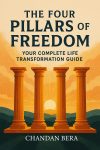Understanding Addiction
The Good, The Bad, and The Path Forward
A comprehensive guide to understanding addiction, recognizing healthy vs. unhealthy patterns, and finding the right resources for recovery and personal growth.
What is Addiction?
Addiction is a complex condition characterized by compulsive engagement in rewarding stimuli despite adverse consequences. It’s a chronic, relapsing disorder that affects the brain’s reward, motivation, memory, and related circuitry. However, not all addictions are harmful – understanding the distinction between positive and negative addictions is crucial for personal development and recovery.
- 10% of Adults
Are affected by addiction in the United States
- Brain Changes
Addiction alters both brain structure and function
- Recovery Possible
With proper treatment and support, recovery is achievable
Types of Addiction
Addictions can be broadly categorized into two main types: substance addictions and behavioral addictions. Understanding these categories helps in recognizing patterns and seeking appropriate help.
Substance Addictions
- Alcohol addiction
- Nicotine/Tobacco addiction
- Opioid addiction
- Cannabis addiction
- Prescription drug addiction
- Stimulant addiction
Behavioral Addictions
- Internet/Social media addiction
- Gambling addiction
- Shopping addiction
- Food addiction
- Sex addiction
- Exercise addiction
Positive vs Negative Addictions
Not all addictions are harmful. Some behaviors, when practiced in moderation, can enhance our lives. The key is understanding the difference between healthy habits and destructive compulsions.
Positive Addictions
Exercise & Fitness
Regular physical activity that improves health and mood
Reading & Learning
Continuous learning and intellectual growth
Meditation & Mindfulness
Practices that enhance mental clarity and emotional well-being
Creative Pursuits
Art, music, writing, and other creative expressions
Helping Others
Volunteering and acts of service that benefit the community
Negative Addictions
Substance Abuse
Alcohol, drugs, and other substances that impair health
Compulsive Gambling
Persistent gambling despite negative consequences
Technology Addiction
Excessive use of social media, games, or internet
Workaholism
Compulsive overworking that harms relationships and health
Workaholism
Compulsive overworking that harms relationships and health
Recovery Strategies
Recovery is a journey that requires multiple approaches. Here are evidence-based strategies that can help overcome negative addictions and build healthier habits.
Professional Support
- Therapy and counseling
- Support groups
- Medical treatment
- Rehabilitation programs
Professional Support
- Regular exercise
- Healthy diet
- Medical treatment
- Rehabilitation programs
Professional Support
- Therapy and counseling
- Support groups
- Medical treatment
- Rehabilitation programs
Recommended Resources
These carefully selected books, journals, and tools can support your recovery journey and help build healthier habits.

Quit Like a Woman by Holly Glenn Whitaker
A brilliantly clever, meticulously researched, fearless, snort-out-loud funny read that grabs you and won’t let go, Catherine Gray We live in a world obsessed with drinking. We drink at work events, lunches, book clubs, and weddings.

Addiction Recovery Skills to Rewire the Brain
A Mindful Workbook to Understand Addiction, Stop Unhealthy Behaviors, Manage Cravings, and Prevent Relapse to Start Living a Mentally Healthy Life

The Addiction Recovery Workbook
.This substance abuse workbook equips you with actionable strategies and coping techniques to succeed in recovery when faced with daily challenges, stressors, and triggers.
Building Healthy Habits
The Science of Habit Formation
Research indicates that it takes approximately 66 days to form a new habit, although this timeframe can vary depending on the individual and the complexity of the behavior. The key is to start small, be consistent, and gradually build momentum.
Start Small
Begin with micro-habits that are easy to maintain
Be Consistent
Daily practice is more important than perfection
Track Progress
Monitor your habits to maintain accountability
Habit Stacking Strategy
Habit stacking involves linking a new habit to an existing one. This creates a natural trigger, making the new behavior more likely to stick.
Example Habit Stacks:
- After I pour my morning coffee, I will write three things I’m grateful for
- After I finish dinner, I will take a 10-minute walk
- After I brush my teeth, I will do 2 minutes of deep breathing
- After I sit down at my desk, I will review my daily goals
Warning Signs of Addiction
Recognizing these signs early can help you or a loved one seek help before the addiction becomes more severe.
Physical Signs
- Changes in appetite or sleep patterns
- Deterioration in physical appearance
- Unusual smells or tremors
Behavioral Signs
- Increased secrecy or dishonesty
- Neglecting responsibilities
- Loss of interest in hobbies
Psychological Signs
- Mood swings or irritability
- Anxiety or depression
- Paranoia or fearfulness
The Path Forward
Understanding addiction is the first step toward recovery and building a healthier life. Whether you’re dealing with negative addictions or looking to cultivate positive ones, remember that change is possible and help is available.
Awareness
Recognize patterns and understand the difference between healthy and unhealthy behaviors
Action
Take concrete steps toward recovery using evidence-based strategies and resources
Support
Build a strong support network and don't hesitate to seek professional help when needed
“Recovery is not a destination, but a journey. Every day is an opportunity to choose health, growth, and positive change.”
This information is for educational purposes only and should not replace professional medical advice. Always consult with a healthcare provider for personalized treatment recommendations.

